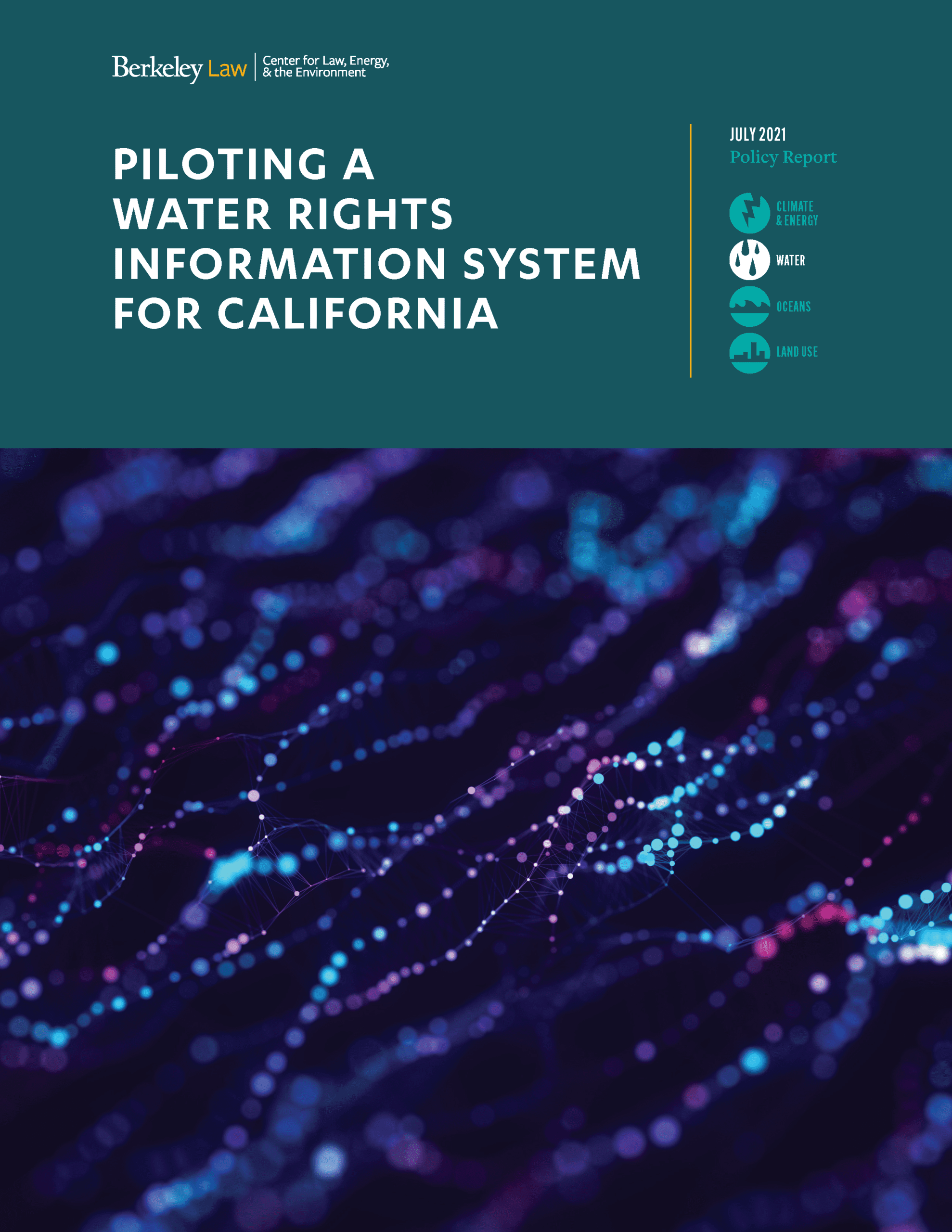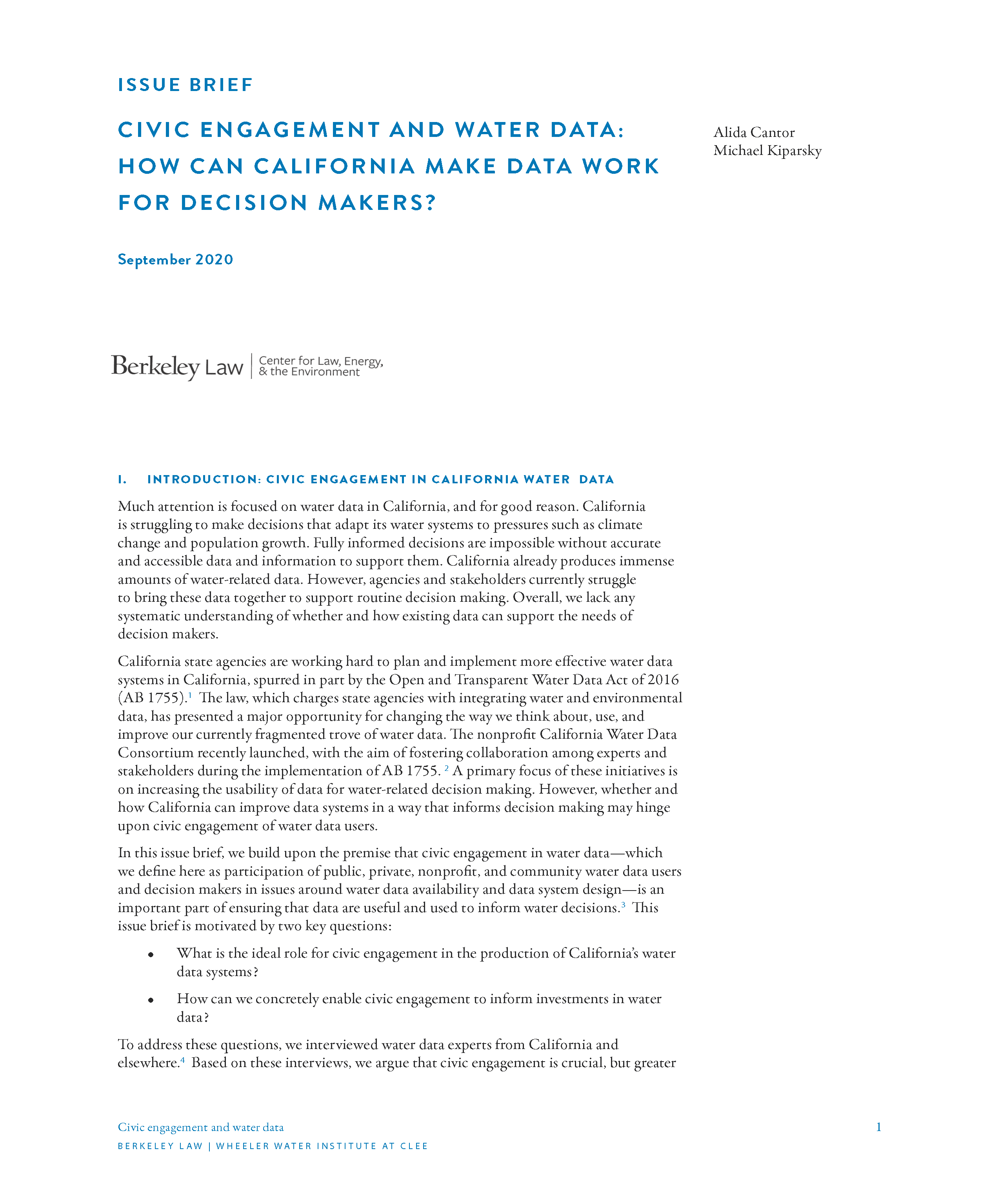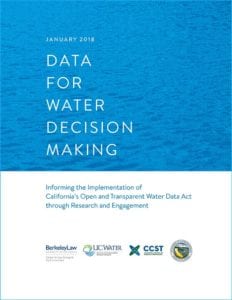Recognizing that water decision making is limited by the quality, availability, and usability of decision-relevant data, this initiative seeks to guide the expansion and improvement of California’s water information systems to meet stakeholders’ needs.
November 2021
Making a Water Data System Responsive to Information Needs of Decision Makers
 Evidence-based environmental management requires data that are sufficient, accessible, useful and used. A mismatch between data, data systems, and data needs for decision making can result in inefficient and inequitable capital investments, resource allocations, environmental protection, hazard mitigation, and quality of life.
Evidence-based environmental management requires data that are sufficient, accessible, useful and used. A mismatch between data, data systems, and data needs for decision making can result in inefficient and inequitable capital investments, resource allocations, environmental protection, hazard mitigation, and quality of life.
In this paper, we examine the relationship between data and decision making in environmental management, with a focus on water management. We focus on the concept of decision-driven data systems—data systems that incorporate an assessment of decision-makers’ data needs into their design. The aim of the research was to examine the process of translating data into effective decision making by engaging stakeholders in the development of a water data system.
July 2021
Piloting a Water Rights Information System for California
California’s complex water management challenges are growing and intensifying. Systemic stressors like the more frequent and severe droughts and floods driven by climate change are only making it harder to respond. Accordingly, California needs to dramatically improve the ability of local, regional, and State entities to make agile and effective water management decisions. We believe doing so will require enhanced understanding of our water resources and how they align with the needs of a range of agencies and stakeholders. Water rights data provide a crucial opportunity for advancing this understanding.
Through a multi-year process of research and engagement, we developed analytical background on how water rights data plays into water management on a broader scale, combined with legal and institutional analysis. Ultimately, we find that a modernized water rights data is feasible, affordable, and can increase clarity for better decision making. Our report, Piloting a Water Rights Information System for California, offers a vision and roadmap for making it a reality.
September 2020
Civic Engagement and Water Data: How Can California Make Data Work for Decision Makers?
As California water resources continue to face pressing challenges, such as climate change and population growth, data will play a critical role in empowering decision makers to adapt quickly. Building on our 2018 work with stakeholders to improve the usefulness of water data, this new issue brief focuses on the role of civic engagement in water data availability and system design. Based on interviews with public, private, nonprofit, and community thought leaders, the research identifies different approaches to civic engagement in water data and how it can be part of solving pressing problems.
August 2018
Addressing Institutional Vulnerabilities in California’s Drought Water Allocation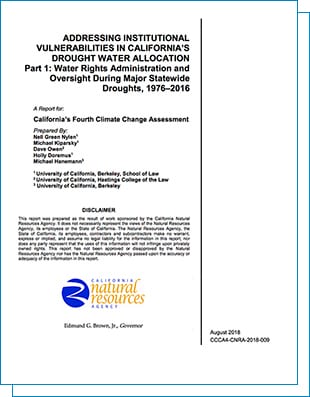
California droughts are likely to become more frequent, longer, and more intense in the future, posing increasing challenges for water management, and raising the stakes for effective drought response. Past droughts have stress tested California’s water management institutions, revealing vulnerabilities that could impair effective adaptation to climate change. The State Water Resources Control Board (Board) is a key water decision maker whose actions affect how scarce water resources are allocated among different human and environmental uses during droughts. In a pair of reports published as part of California’s Fourth Climate Change Assessment, we examine how the Board has carried out its water rights responsibilities during past droughts and offer recommendations for improving the agency’s future drought response.
April 2018
Improving California’s Stream Flow Monitoring System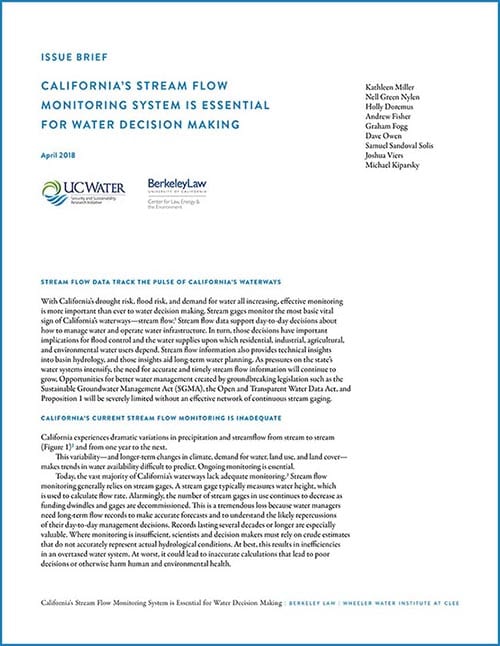
With California’s drought risk, flood risk, and demand for water all increasing, effective monitoring is more important than ever to water decision making. Stream gages monitor the most basic vital sign of California’s waterways—stream flow. Stream flow data support day-to-day decisions about how to manage water and operate water infrastructure—decisions that have important implications for flood control and the water supplies upon which residential, industrial, agricultural, and environmental water users depend.
January 2018
Data for Water Decision Making
A lack of data and information has limited our ability to understand, let alone better manage, all aspects of our water resources. This report supports California’s efforts to develop modern water data systems. It argues that simply providing more data is not enough, and that generating useful and useable information hinges on the development of data systems based on end users’ needs. The report describes lessons learned from a process of stakeholder engagement focused on defining and clarifying uses of water data, and how knowledge of these uses can inform the development of water data systems.
Also see our Op-Ed in The Sacramento Bee.
